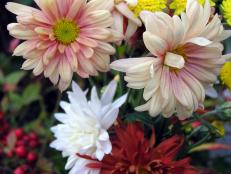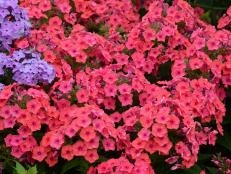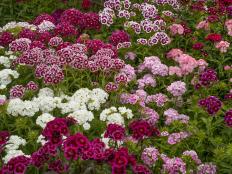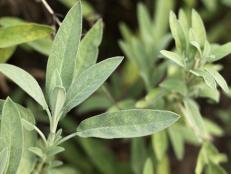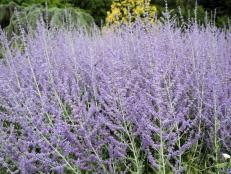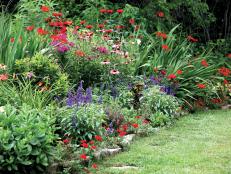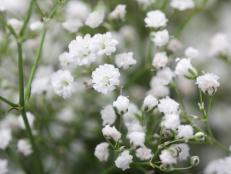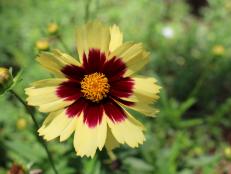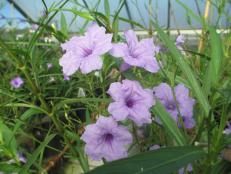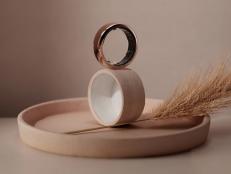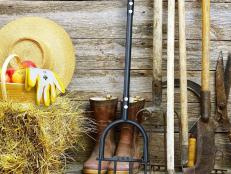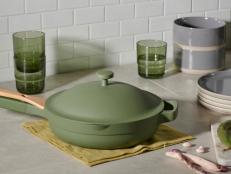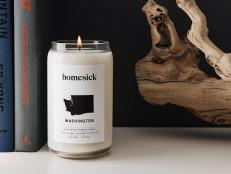Gayfeather, Blazing Star
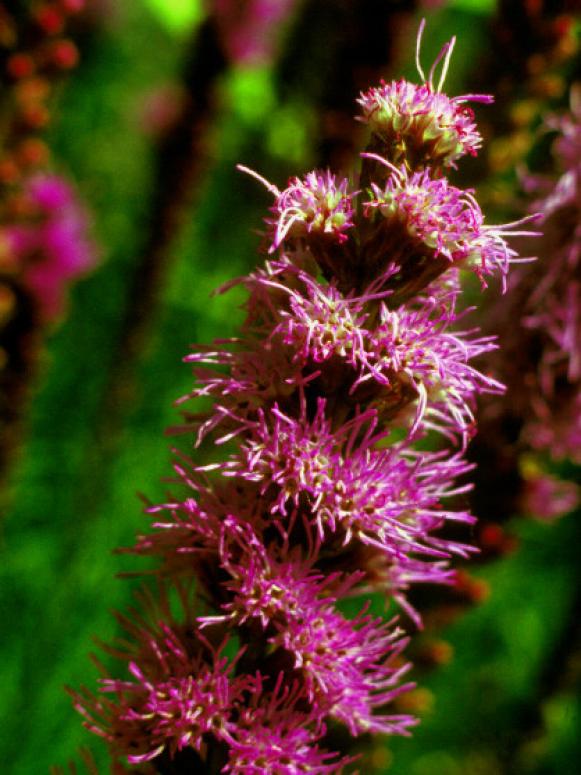
Plant type: Herbaceous perennial
Botanical name: Liatris
Hardiness: USDA Zones 3 to 9
Showy native prairie plant. Gayfeather is easy to grow and long-lasting in the garden. Unique spiky flower heads with narrow, grasslike foliage growing along erect stems. Bloom colors are white, pink, lavender and purple. Flowers in summer. Plant size ranges from two to five feet tall and as wide.
How to use it: In masses or containers. Use in a sunny, mixed perennial border. Good for naturalized areas or cutting gardens. Because it can get lost if planted alone, plant in groups of three, five or more for full effect. Excellent fresh or dried cutflower.
Culture: Prefers a well-drained to dry soil. Does not like to have wet feet going into winter. Plant in full sun. May require staking. Propagated through seed, cuttings or division of the tuberous corms. No serious problems with pests or diseases.
Special notes: Several species native to various parts of the U.S. Commonly used in commercial floral arrangements. Drought tolerant. Attracts wildlife, including birds and butterflies.
Selected Cultivars and Species
- Common gayfeather (L. spicata). Most commonly found gayfeather on the market. Flower spikes reach three to four feet tall and wide.
- 'Floristan White'. White flowering. Good cutflower.
- 'Kobold'. Shorter and more compact plant reaches two feet tall. Therefore doesn't need staking. Produces a lavender bloom.
- Tall gayfeather (L. scariosa). Reaches one to four feet tall and about two to three feet wide. Native to the eastern U.S.






